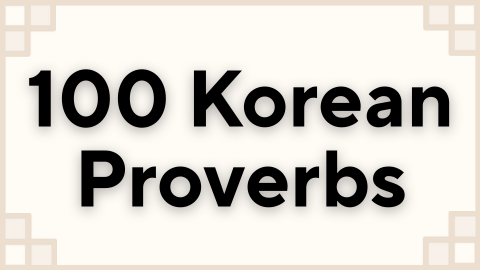Korean Lessons ᚛ Level 1 - My First Steps in Korean (Lessons 1 to 30) ᚛ Lesson 14 - Conjugation of present tense verbs in Korean [-아/어(요)]
Conjugation of present tense verbs in Korean [-아/어(요)]
Currently, the sentences you understand in Korean are limited because we do not yet know how to conjugate verbs. In this lesson, we will see the conjugation of verbs of the present in Korean with the casual and polite styles.
Present Casual Style in Korean
Conjugating verbs in the present in the casual style is simple, but it is necessary to distinguish two cases:
- verbs with a final stem syllable that contains ㅏ or ㅗ.
- verbs with a last stem syllable that does not containㅏ or ㅗ.
Stem in ㅏ / ㅗ
Verbs whose last stem syllable contains ㅏ or ㅗ are conjugated as follows:
[Stem]아
Examples
The verb 살다 (= to live) has a stem 살 which contains a ㅏ, so we add 아 to the stem.
- 살다 → 살아. = I live. / You live. / He lives… etc.
The verb 놀다 (= to play) has a stem 놀 which contains a ㅗ, so we add 아 to the stem.
- 놀다 → 놀아. = I play. / You play. / He plays… etc.
The other stems
If the stem of a verb does not end in a syllable containing ㅏ or ㅗ, we conjugate this verb as follows:
[Stem]어
The verb 먹다 (= to eat) has a stem 먹 which contains neither ㅏ nor ㅗ, so we add 어 to the stem.
- 먹다 → 먹어. = I eat. / You eat. / He eats… etc.
The verb 만들다 (= to make) has a stem 만들 whose last syllable contains neither ㅏ nor ㅗ, so we add 어 to the stem.
- 만들다 → 만들어. = I make / You make. / He makes… etc.
Present Polite Style in Korean
Conjugating verbs in the present tense in the polite style requires taking the form of the casual style and adding the polite suffix 요 to it, as follows:
[Verb conjugated in the present casual style]요
The verb 알다 (= to know) has a stem 알 which contains a ㅏ, so we add 아 to the stem to obtain its casual style form which is 알아. Its polite style form is created by adding the polite suffix 요.
- 알다 → 알아요. = I know. / You know. / He knows… etc.
The verb 읽다 (= to read) has a stem 읽 which contains neither ㅏ nor ㅗ, so we add 어 to the stem to obtain its casual style form which is 읽어. Its polite style form is created by adding the polite suffix 요.
- 읽다 → 읽어요. = I read. / You read. / He reads… etc.
Summary table of structure
Learn more
Exercises
Learn more
You already know some vocabulary and sentence structures… But when you listen to Koreans speak, do you ever feel like something is missing, the meaning behind the words, the cultural nuance that makes the language truly come alive?
That’s completely normal. In Korean, proverbs and idiomatic expressions are essential to understanding how Koreans think and communicate. Without them, you can speak, but your language will feel flat and overly literal.
With 100 Korean Proverbs - Illustrated and Explained, you’ll understand not only what Koreans say, but why they say it, and what each expression reveals about their mindset and culture.
Learn more

